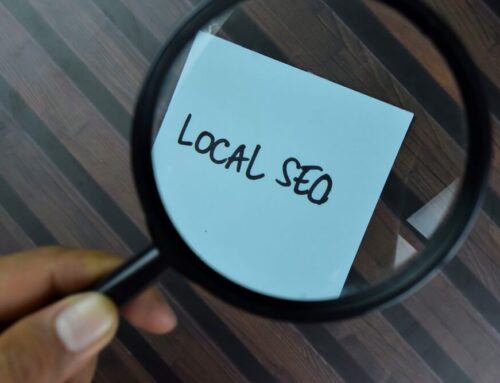SEO (Search Engine Optimization) is a common way to boost the ranking of a website in search engines. It may sound like a complicated process, but SEO is actually a combination of efforts and strategies which can be implemented with a little bit of skill.
When done well, SEO will get results and can lead to a significant increase in traffic. Deciding on the right time to start an SEO campaign can be a hard decision. Brands want to stand out from their competitors and get as close to the number one spot on Google as possible.
Many new websites will begin to plan their SEO campaigns even before launching, and it is never too early or too late to start.
However, there are a few things to consider when choosing the right time for SEO, as there are steps which can be taken to make it more affordable and less time consuming:
Get to Know the Website
Google has a range of free tools that are designed to give webmasters information which can help to create the best user experience possible.
Before starting a campaign, sign up for the following:
Google Analytics
Google Analytics tracks where any website visitors come from and creates in-depth reports. After signing up, a unique snippet of code will be given which will need to be placed on every single page. This can normally be done once in the site’s header.
The stats which can be accessed include page views, unique visits, bounce rate, and even how long a person spends on a specific page. Where they came from, and where they ended up can be important information when setting up an SEO campaign.
Google Analytics can even allow website monitoring in real-time. As a free tool, this really is beneficial to every online presence.

Google Search Console
One other free tool that webmasters should consider signing up for is Google Search Console. This is a destination that allows website owners to monitor their optimization strategies.
Formerly, Google Webmaster Tools, this platform will give users valuable information and alert to any errors which could assist with their SEO goals. When something is flagged with the search engine which may hinder page ranking, a message is sent to the webmaster.
The more information which is on hand, the better the results will be as otherwise it is essentially like stabbing in the dark. Information is powerful, and when it comes from a free tool there is no risk.
Check the Website Design
When a website is designed to be SEO friendly, it makes the job of optimization much simpler. This means, updating any software and choosing a platform which is made with functionality in mind.
Fast loading pages and the flexibility to be used on mobile devices really do make a difference. There is no point investing time and money into an SEO campaign for a website which is outdated. It is much easier to gain results with the right foundation.
The additional benefit of having up to date software is the security and peace of mind it brings. Bugs are generally fixed and vulnerabilities reduced with each update. This is particularly useful with platforms such as WordPress where fixes and upgrades are regularly added.
Be Ready to Commit
Before starting an SEO campaign it is important to consider that it is a long term commitment. It requires time and potentially money. Once it has started it may take time to see results so being prepared for the hard yards is essential.
Everyone who is involved with the website needs to be on board as some changes may need to be made. It should be a team approach and training may need to be provided. Don’t start until everyone is committed.
The way posts are written and the structure of the website may all be impacted as new techniques are adopted.
Prepare Social Media
Social media is going to play a part in any marketing efforts and should be set up prior to starting any SEO style campaigns. What this means is, setting up those accounts and start to build a following.
Choose consistent imagery and create a theme for any social media profiles. Everything which can be done before hiring an expert SEO agency is going to save time in the long run. It isn’t essential to do this first, but it is recommended as an extra promotional tool.

Know the Niche of the Brand
More often than not is it better to have a specific niche rather than a general mish-mash of ideas. This is where it is important to know where the traffic is coming from so many goals can be built.
This involves doing some research and learning about the target audience. Consider what terms people are using to find the website and perform a content audit.
For new websites that haven’t yet launched, brainstorm who the target demographic will be and what they may be searching for.
Focus on Content
Don’t forget that content is one of the most valuable tools for growing website traffic. Having somewhere to direct those visitors and keep them browsing the pages for as long as possible can make a huge difference.
Try these simple content strategies:
Remove any Duplicate Content
Duplicate content tells Google it is a copy of a copy, and not original. For online stores, don’t rely on the content from the manufacturer, but come up with something entirely new. This can be time-consuming, but it will pay off.
Put a different spin on things and show the true voice of the website. Search engines prefer unique content so get this in order before investing in more advanced SEO. Learn to write in this style, or alternatively hire an SEO blog writer with experience in this area.
Write for the Audience
Once the audience has been established, cater the content to their specific needs. It is all well and good to write for a search engine, but the visitors now need to be the main target.
Quality content that draws them in and keeps them coming back for more should be the ultimate goal. Always have something to offer which cannot be found elsewhere, while solving a problem they never knew they had.

Longer is Better
Longer content is always more effective than shorter snippets. Aim for a minimum of 500 words per article but keep those words relevant. Avoid adding extra words for the sake of it, whatever is said should be related and in line with the subject matter.
For example on a technology website, no one really cares what Kenny had for breakfast. But, they may want to know what his thoughts on the new iPhone X are. This comes back to knowing the niche and writing for the intended audience.
Be an expert. The saying “Jack of all trades, Master of None” is not the goal when it comes to creating quality content. Get used to breaking up content with heading tags, and bullet points for a cleaner approach. This makes it easier to read and more friendly to search engines and robots.
Create a Content Plan
Any business can benefit from having a content plan. This can be emulated across both the website and social media and assist any future SEO efforts. This is a clear strategy that determines what is happening and when.
Planning content in advance will help with seasonal keywords, allowing time for the content to be indexed in the major search engines in time for big events. The organization is the key!
Do a Tidy Up
An SEO company can do this, but with some amount of technical know-how, a business owner can include a website clean up as part of their preparation.
Start by removing broken links and checking the navigation of the website. A sitemap is literally a map for the website and will give search engines a clear indication of how it all connects. This can even be submitted to Google for more streamlined indexing.
What Else Can be Done?
Start with what can be done, this is particularly useful for local businesses. Focus on how to promote the brand on local searches.
Add the website to Yellow Pages and other similar directories. Include maps, reviews, and relevant contact information. The easier it is for the business to be found, the better!
Get the look and feel of the website just right, as all the new visitors which will be gained from solid SEO efforts will need to be able to use it efficiently.
Choose the Right SEO Company
When the time has come to begin an SEO campaign, an SEO company may be hired to do the job. Research different companies until the right fit are found.
When prior research has been undertaken, the right questions can be asked. What are the ideal results and how can they be achieved? Having realistic goals creates something to aim for and everyone will be on the same page.
Wrap Up
Starting an SEO campaign is not about if, but when. Most successful online businesses have embraced SEO strategies to a certain extent, whether it is intentional or not.
Expecting overnight success is unrealistic, and algorithms are always changing. It is a smart move to build a relationship with a trustworthy SEO company and take the guess work out of growing the website traffic.
A strong website design, social media efforts, and quality content will all help to ensure the SEO investments are not being wasted unnecessarily. Good luck, ranking highly in Google is achievable it just takes some hard work and patience.
SOURCE: The Marketing Folks









